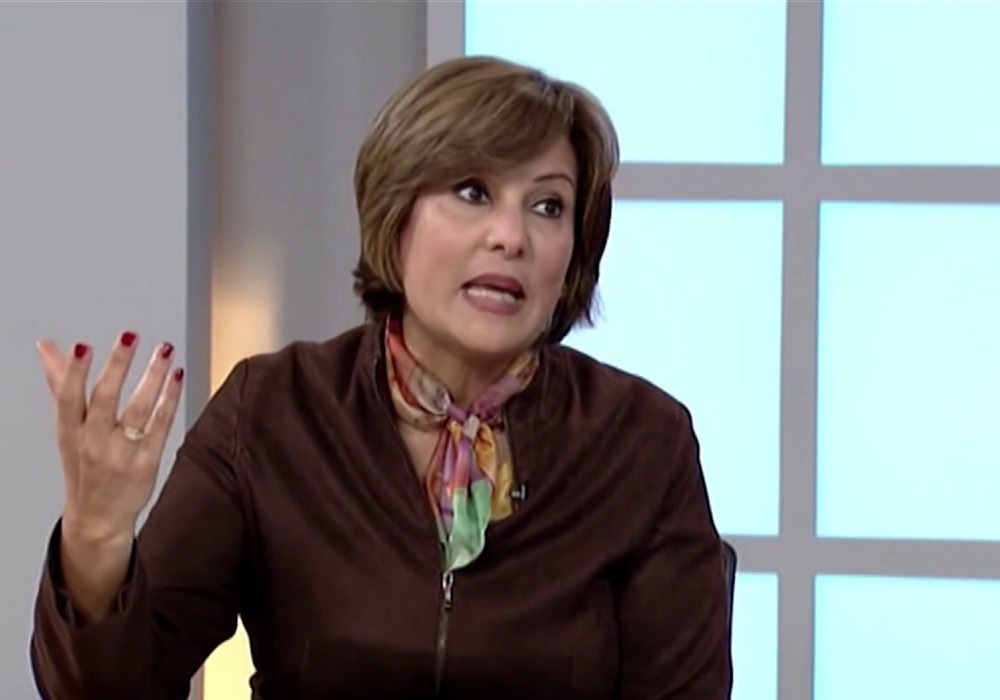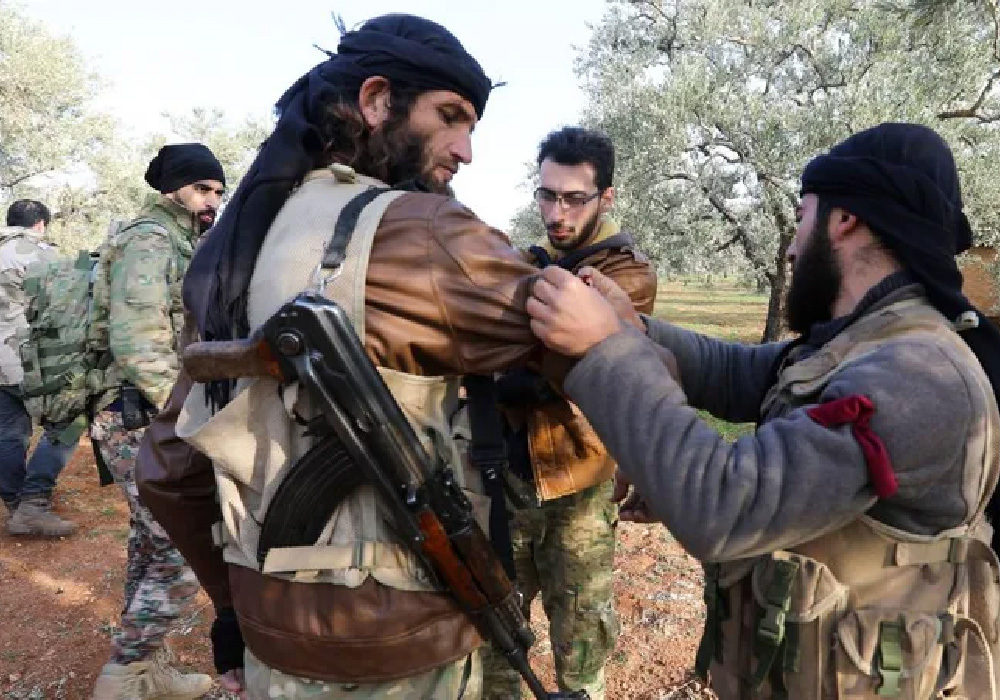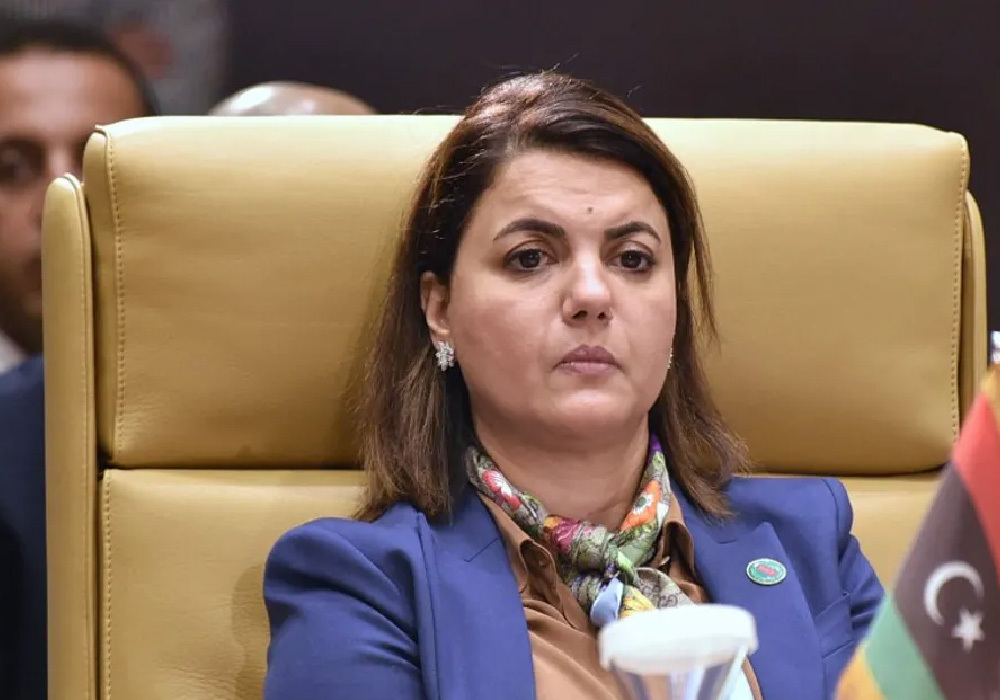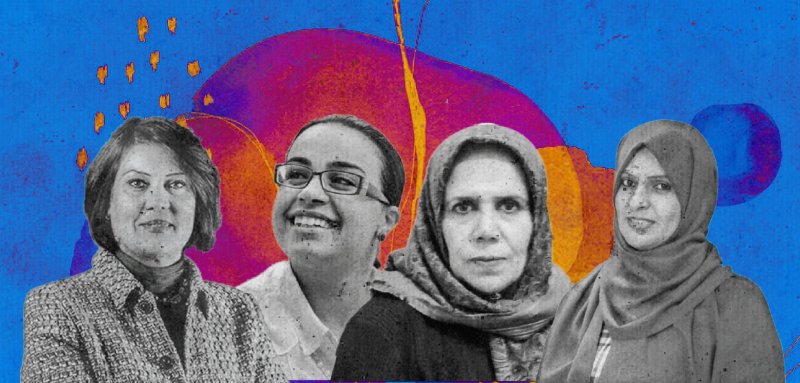On the afternoon of June 25, 2014, lawyer and human rights activist Salwa Bugaighis from the city of Benghazi in eastern Libya, called on her citizens, through live television and social media, to participate in the parliamentary elections, as a means to activate community participation and engagement, which she saw as a way to overcome the cycle of political and ideological differences and reach effective solutions and alternatives.
That evening, masked gunmen infiltrated Bugaighis's house. They shot the guard in the leg, then barged into the house to open fire at the lawyer, hitting her with more than 11 bullets, one of which lodged directly in her head. But this did not seem to quench their thirst for blood and their ideological hatred against all those who oppose them, so they proceeded to stab her in several places on her body. She died a few minutes after arriving at the hospital.

A dangerous path
The assassination of Salwa Bugaighis was not just any crime, but rather a historical precedent, and a dangerous indicator of the situation of the country, which turned after 2011 into an arena for a mixture of militias, gangs and terrorist groups that do not adhere to any concept of gender equality and direct their violence against women. Since then, women have been greatly targeted in Libya.
On July 7, 2014, activist Fariha al-Barkawi was assassinated when she was shot dead at a gas station in the city of Derna. On November 21, 2014, the assassination of a young Libyan activist Sarah al-Deeb, in the Hay al-Andalus neighborhood in the capital Tripoli, shook the cultural and human rights circles in Libya.
On February 23, 2015, activist Intisar al-Hasairi was assassinated. She was found in the trunk of her car in Tripoli after being killed with a sharp object. Al-Hasairi was a member of the liberal-leaning Tanweer Movement, which is invested in spreading the culture of reading and community awareness. She had also participated in demonstrations against terrorist groups.
That evening, masked gunmen infiltrated Bugaighis's house, shot the guard, then barged inside to open fire at the lawyer, hitting her with more than 11 bullets. But this didn't quench their thirst for blood, so they proceeded to repeatedly stab her body
On November 10, 2020, unidentified masked gunmen shot lawyer Hanan al-Barassi in one of Benghazi's largest and busiest streets, after they tried to kidnap her in broad daylight. This was preceded by the kidnapping of MP Siham Sergewa by gunmen from her home in Benghazi on July 17, 2019. Her fate remains unknown to this day despite international appeals and calls by human rights organizations and ambassadors of major countries to release her and reveal what had become of her.
Many cases of assassinations have been interspersed with various types of violations against women, from beatings and insults while standing in long queues in front of banks, to extortion and the exploitation of displaced and refugee women by armed groups of different allegiances, in addition to domestic violence, rape, and other forms of oppression.
Women and the journey to find their role and purpose
The feminist movement in Libya began in the thirties of the last century, to enable women to play a societal role away from the traditional ones imposed by the tribal society. Despite the difficulties faced by the movement, it continued with great hopes and stronger determination. Libyan women, following the declaration of independence in the fifties of the last century, were able to obtain higher and more diversified education, which contributed to their advancement and pushed them towards participation in community life, where they proved their clear competence in many fields.
The establishment of the first women's association in Benghazi in 1954, by Ms. Hamida Tarkhan, known as Hamida Enezi, represented an important gain for Libyan women to achieve their ambitions and participate in the social and political life of the country. Despite the shortcomings that accompanied the rule of Libyan leader Muammar Gaddafi, there are many indicators that confirm women achieved important accomplishments at the time.
A report by Global Research on Gaddafi's Libya published in 2015, has stressed that women under his rule had access to many their rights, unlike many other Arab nations. They had the right to education, hold jobs, divorce, hold property, and have an income. Gaddafi was praised by the United Nations Human Rights Council for his promotion of women’s rights. The report added that when Gaddafi came to power in Libya in 1969, few Libyan women went to university, but today more than half of the country’s university students are women. In fact, one of the first laws Gaddafi passed in 1970 was an equal pay for equal work law.
"Prior to 2011, Libyan women achieved many gains, as they were the first women in the Arab world to hold the position of judge, assume positions in the judiciary in 1989, and enter military academies along with all other sectors in the state"
Professor Haneen Bouchoucha, a researcher in gender and governance and president of Nawazi organization for gender studies, tells Raseef 22, "Prior to 2011, there were many accomplishments at the legislative and legal level by the political system at that time. Libya was one of the Arab countries that ratified the most international conventions, ratifying 8 out of 9 conventions, including CEDAW and the two of its related protocols: the Individual Complaints Protocol and the Parallel Reporting Protocol."
"Prior to 2011, Libyan women achieved many gains, as they were the first women in the Arab world to hold the position of judge, assume positions in the judiciary in 1989, and enter military academies along with all other sectors in the state," Bouchoucha adds.
However, these gains were neither sufficient nor complete, and were punctuated by many difficulties and obstacles. Bouchoucha attributes this to “many obstacles that include the existing societal culture, the lack of acceptance of the development that has taken place, and the rights that have been granted to women."
There was societal rejection of the presence of women in many sectors, or for holding sovereign positions in the state. "Most of the positions held by women at that time were related to social affairs and were at the executive level.
The researcher stresses that "there was a big problem in accepting women in several sectors such as military academies. There were concepts about shame and disgrace in regards to the male mentality and patriarchal thinking that exists in Arab societies in general, and in Libyan society in particular. This cultural violence has impacted women’s role in society."
With the outbreak of the "Libyan revolution" demanding social, economic and political freedoms, women in Libya continued their struggle and developed their role in society. But the raging war was a stumbling block to its progress, crippling its past gains

2011... Moving backwards
With the outbreak of the "Libyan revolution" in 2011, which, like its counterparts in the "Arab Spring" countries, carried slogans demanding social, economic, and political freedoms, women in Libya moved towards continuing their struggle and developing their role in society. But the war raging in the country was a stumbling block to its progress and crippled its past achievements
Libyan journalist Enas Ahamida tells Raseef22, "The expansion of violence against women was the result of the wars that the country has suffered from. This has resulted in armed groups taking control, displacement, the absence of support in some cases, the absence of law, impunity, and the escalation of extremism and Salafism. In addition, women, as a result of the need for money, had to be in jobs that do not provide adequate protection or guarantees that preserve their rights."
With regards to the role of civil society organizations and NGOs in assessing and reducing risks, Ahamida believes that it is "an experience that has not yet matured in Libyan society. And it can be said that it has been used as a front to advance foreign agendas. Therefore, they are still not reliable enough to assume an important role such as supporting women." She adds, “On the other hand, the need is great and necessary for supportive institutions to create a suitable environment for work, in terms of advanced and applicable laws, and devices that follow-up, monitor, and provide support."

Positions but..
Despite the strong presence of women after 2011, their significant involvement in several sectors from the media to civil society and organizations, and their entry into the political arena as deputies and ministers, this presence remained limited and unfair to the efforts made by women to enhance their role in a society that aspired to be free of all gender discrimination.
Professor Zahia Faraj, head of the relations office at Al Jabal Al Gharbi University, tells Raseef22, "We, women leaders used to give women typical ministerial positions after 2011, such as positions in the Ministry of Social Affairs and the Ministry of Culture, which in our view were below the level of struggle achieved by Libyan women following the Arab Spring revolutions. Women were in the front lines,as fighters and doctors. They have founded civil organizations, led demonstrations, and contributed to building the state."
Zahia adds, "I do not mean to belittle the nature of the work carried out by these ministries, as it is of importance. I only mean to emphasize that the mental image drawn in the imagination of society and the government lies in the fields related to women. And when women were appointed to occupy the positions of ministers of foreign affairs and justice, the news had a great resonance."
Although women obtained four ministerial portfolios in the Government of National Unity headed by Abdul Hamid al-Dbeibeh, with a percentage of 14%, in a historical precedent, this rate is insufficient and does not comply with the agreements of the rounds of political dialogue in Tunisia and Geneva, during which the UN mission stressed that a quota for women should be allocated "not less than 30%" of the number of ministers in the new government formation - at the time.
Najla Mangoush's position as a foreign minister — which has been met with wide praise internationally and was described by the US ambassador to Tripoli, Richard Norland, as a "historic moment for Libyan women" — is not without obstacles. Mangoush faces the toughest challenges since taking up the job, and has been subjected to numerous attacks and campaigns, on live television and social media with every appearance she makes and regardless of the occasion.
Now the scene seems to be very bleak, with political differences, conflicts and wars, deteriorating security conditions, not to mention a patriarchal culture fueled by customs and traditions and the spread of extremist and radical “Islamic” ideology that views women as "awrah" (i.e. something that should not be exposed or seen by others). But the journey of Libyan women in the fight for their rights will not stop. And their continuous and lasting distinction will be the key to decoding and deconstructing the patriarchal society.
Raseef22 is a not for profit entity. Our focus is on quality journalism. Every contribution to the NasRaseef membership goes directly towards journalism production. We stand independent, not accepting corporate sponsorships, sponsored content or political funding.
Support our mission to keep Raseef22 available to all readers by clicking here!
Interested in writing with us? Check our pitch process here!



